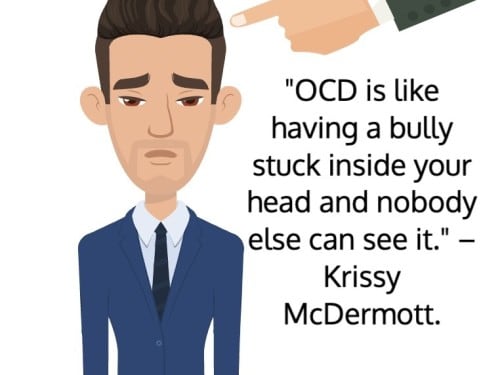Understanding OCD

posted 12th July 2024

Understanding OCD
Obsessive-Compulsive Disorder (OCD) is a mental health condition characterised by persistent, unwanted thoughts (obsessions) and repetitive behaviours (compulsions) that an individual feels compelled to perform. These behaviours are often aimed at reducing the anxiety caused by the obsessions or preventing a feared event or situation. Common obsessions include fears of contamination, harm, or a need for symmetry, while compulsions might involve cleaning, checking, or arranging objects in a specific way.
How Can OCD Be Treated?
OCD can be effectively treated using a combination of approaches, including medication, psychotherapy, and self-help strategies.
Psychotherapy
Cognitive Behavioural Therapy (CBT): This is the most effective form of psychotherapy for OCD. It involves Exposure and Response Prevention (ERP), where patients are gradually exposed to their fears and taught to resist the urge to perform compulsions.
Mindfulness-Based Cognitive Therapy (MBCT): This combines traditional cognitive therapy with mindfulness strategies to help individuals become more aware of their thoughts and feelings in a non-judgmental way.
Medication
Selective Serotonin Reuptake Inhibitors (SSRIs): These are commonly prescribed and have been shown to reduce the symptoms of OCD.
Mindfulness can be a powerful tool in managing OCD by helping individuals become more aware of their thoughts and reduce the compulsion to perform rituals.
Daily Mindfulness Practice:
Start with 10 minutes of mindfulness meditation each morning.
Focus on your breath and observe your thoughts without judgment.
Mindful Breathing Exercises:
Practice deep breathing exercises when you feel an urge to perform a compulsion.
Inhale deeply for 4 seconds, hold for 4 seconds, and exhale for 4 seconds.
Mindful Observation:
Engage in mindful observation of your surroundings once a day. Spend 5 minutes focusing on the sights, sounds, and smells around you.
Body Scan Meditation:
Perform a body scan meditation each evening. Start from your toes and move upwards, paying attention to each part of your body.
Mindful Journaling:
Spend 10 minutes before bed journaling about your day, focusing on your thoughts and emotions.
Role of Psychologists in Treating OCD
Psychologists play a crucial role in treating OCD by providing professional support and guidance. They can help tailor treatment plans to the individual’s specific needs, ensuring that therapeutic techniques like CBT and mindfulness are effectively integrated into their daily lives. Psychologists can also help individuals track their progress, identify triggers, and develop coping strategies to manage their symptoms.
Risks of Self-Help Plans Without Professional Support
While self-help plans can be beneficial, they carry the risk of becoming another form of compulsion for individuals with OCD. Without professional guidance, individuals might become obsessed with following the plan perfectly, which can exacerbate their OCD symptoms rather than alleviate them. Professional support helps to ensure that the self-help strategies are used effectively and do not become counterproductive.
How Mindfulness Helps OCD
Mindfulness helps individuals with OCD by teaching them to observe their thoughts and feelings without reacting to them. This non-reactive awareness reduces the power of obsessions and diminishes the urge to perform compulsions. By staying present and focusing on the moment, individuals can break the cycle of obsessive thinking and compulsive behavior, leading to greater emotional stability and mental clarity.
OCD is a challenging condition, but with the right combination of psychotherapy, medication, and mindfulness practices, individuals can manage their symptoms effectively. Professional support from psychologists enhances the effectiveness of these treatments, ensuring that they are tailored to the individual's needs and preventing the self-help strategies from becoming counterproductive. Through mindfulness and other therapeutic techniques, individuals with OCD can learn to manage their condition and improve their quality of life.



